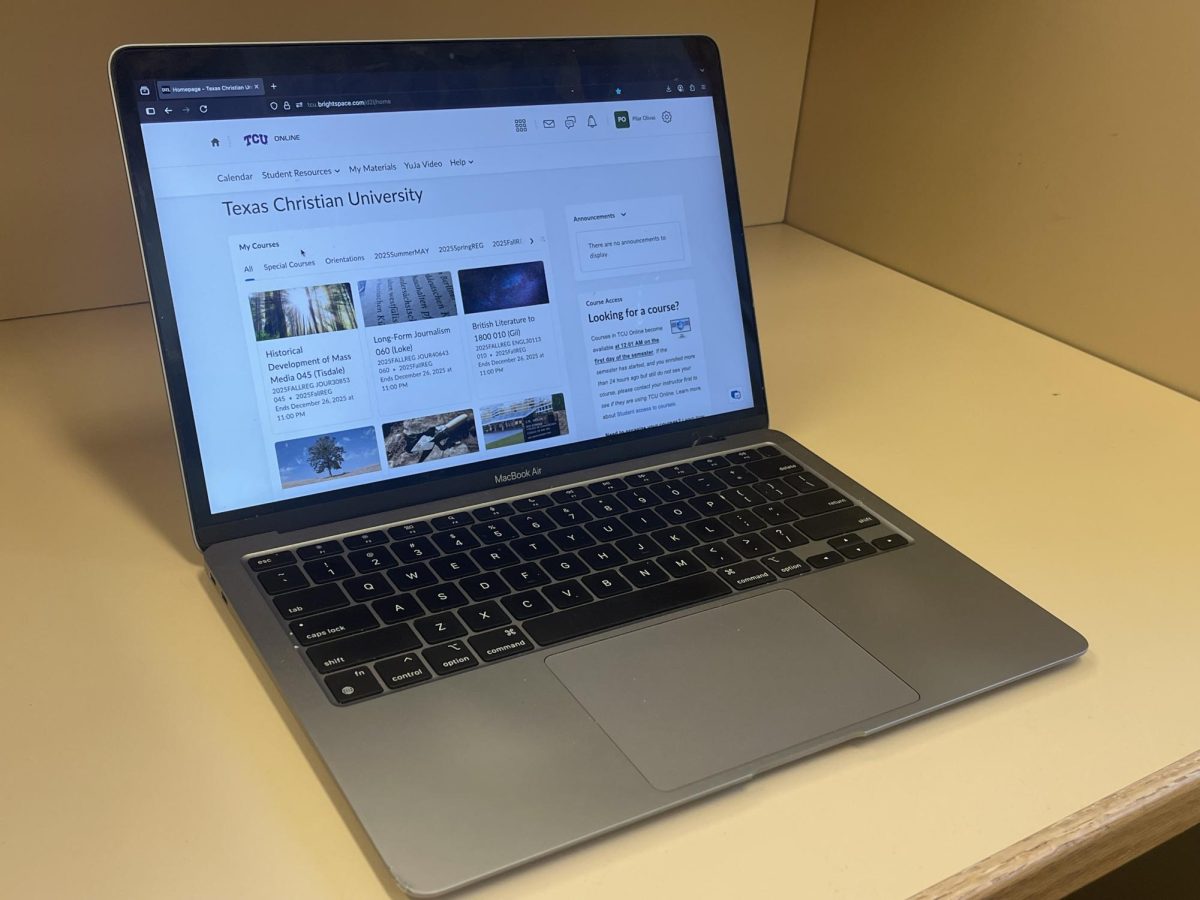With spring 2022 enrollment approaching quickly, students are setting appointments with their academic advisors, plotting their schedules and beginning to enroll in courses for next semester.
The process can be stressful and confusing to navigate, especially for first and second-year students who don’t quite know the ins and outs of picking classes and professors.
Tools offered by TCU, like My Purple Schedule builder and academic advisors, can make the process easier. Some TCU students also rely on other alternatives like Rate My Professor and talking to classmates and friends.
“I learned after my first semester that relying on your older peers is the way to go for figuring out what professors to sign up for, rather than simply talking to an advisor,” said Maddie Pritchett, a junior nursing major.
Through trial and error, juniors and seniors have figured out the best approaches to enrollment and have advice to offer those who may feel overwhelmed or are looking for more guidance.
Enrollment
While the enrollment process seems straightforward enough, the decision of picking between classes and professors can be the reason many students feel uneasy about the upcoming semester.
Each student is assigned a professional advisor who will “assist you as you develop your academic plan and clarify your college and career goals,” according to the TCU website.
The advisor’s job is to give students an opportunity to go through TCU courses and degree requirements before enrollment to help decide on the best plan for that individual. First-and second-year students must meet an advisor before enrolling in any classes.
“My advisors have been great with giving me an outline and plan for my course schedule,” said William Durkerly, a senior communications major.
Alternative tools
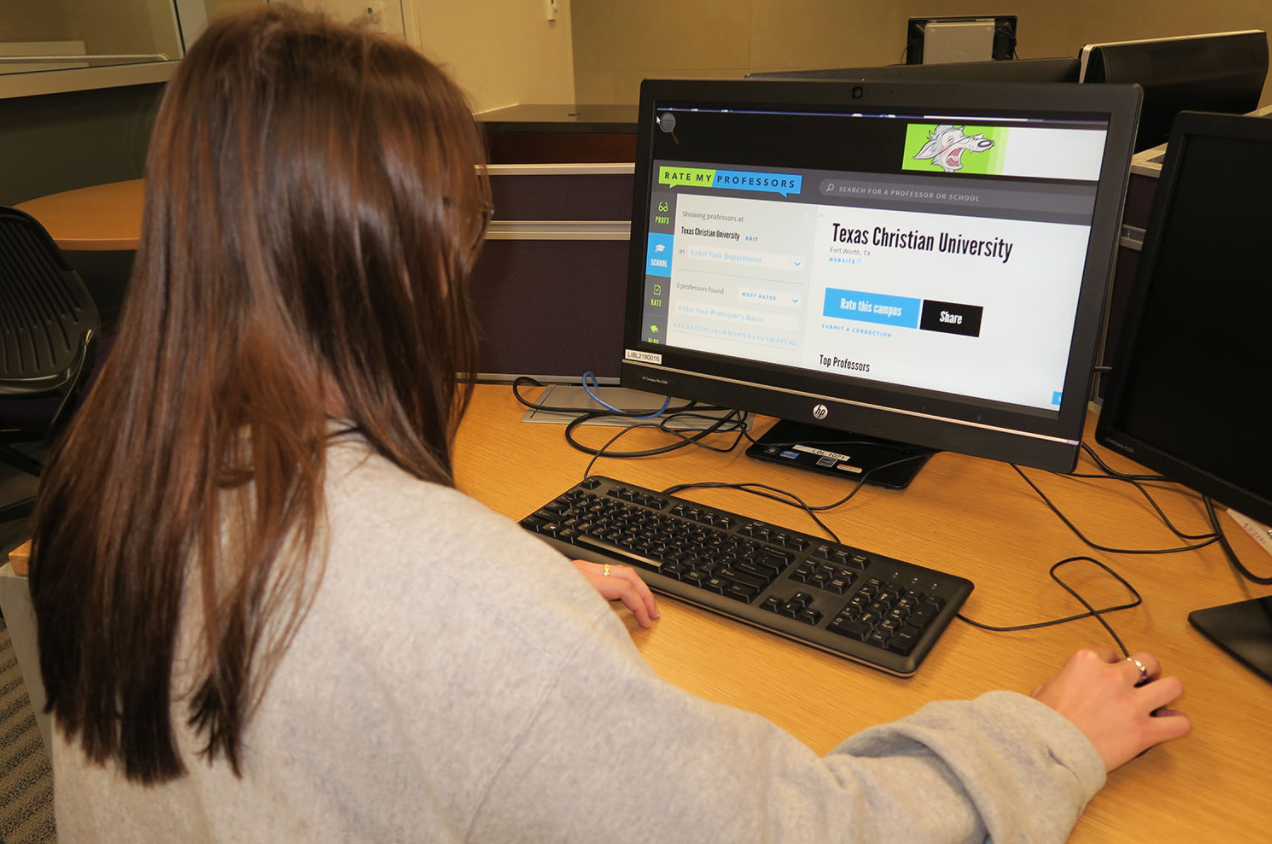
Not all students feel the same about the advising process. Out of 21 students surveyed from different majors and grade levels, 13 said that tools like Rate My Professor or talking to upper-level students were more helpful than their TCU Advisor.
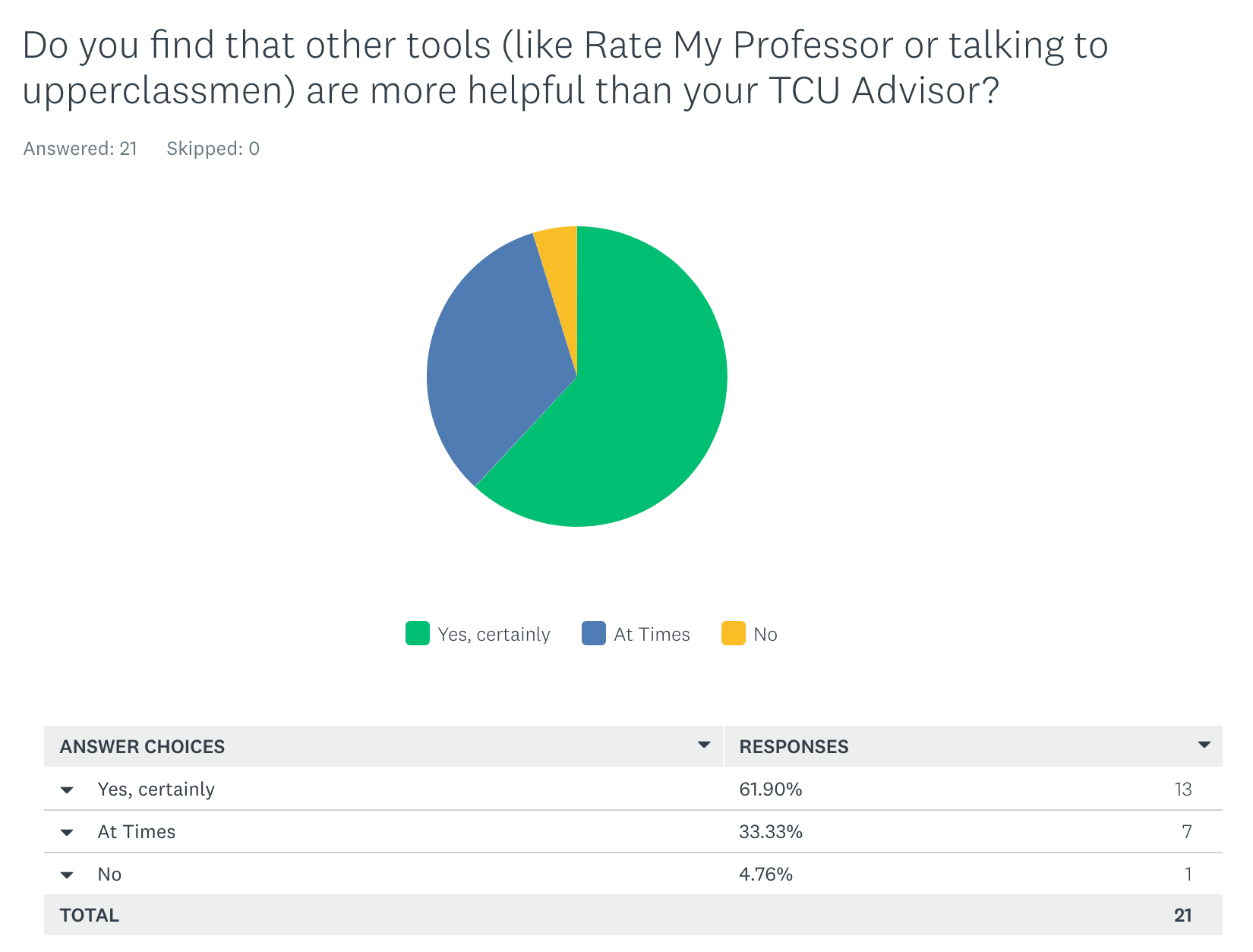
“I think Rate My Professor is helpful because it gives reviews based on the student’s point of view, and many students also disclose the professor’s teaching style which is helpful because I make sure that a professor formats their class in a way that will benefit me and ensure my success,” said Pritchett.
Pritchett places the most weight on finding a professor rather than making sure the class time works easily with her schedule. Her biggest advice is looking at Rate My Professor, talking with older friends, and adding more classes than needed to have more wiggle room if you need to drop any classes.
“I got the class times I wanted for a while, but then realized it was more to my benefit to focus on the professor rather than the time of day, so sacrificing my ideal time was worth getting a better professor,” said Pritchett.
The problem for other students is not the advisor, but the software TCU uses for enrollment.
“My experience with the registration process for classes each semester has been tedious. Mostly due to the archaic software that TCU uses for this process,” said Harry Rooke, a junior philosophy major. “I often felt overwhelmed by the process as it can be confusing.”
The solution
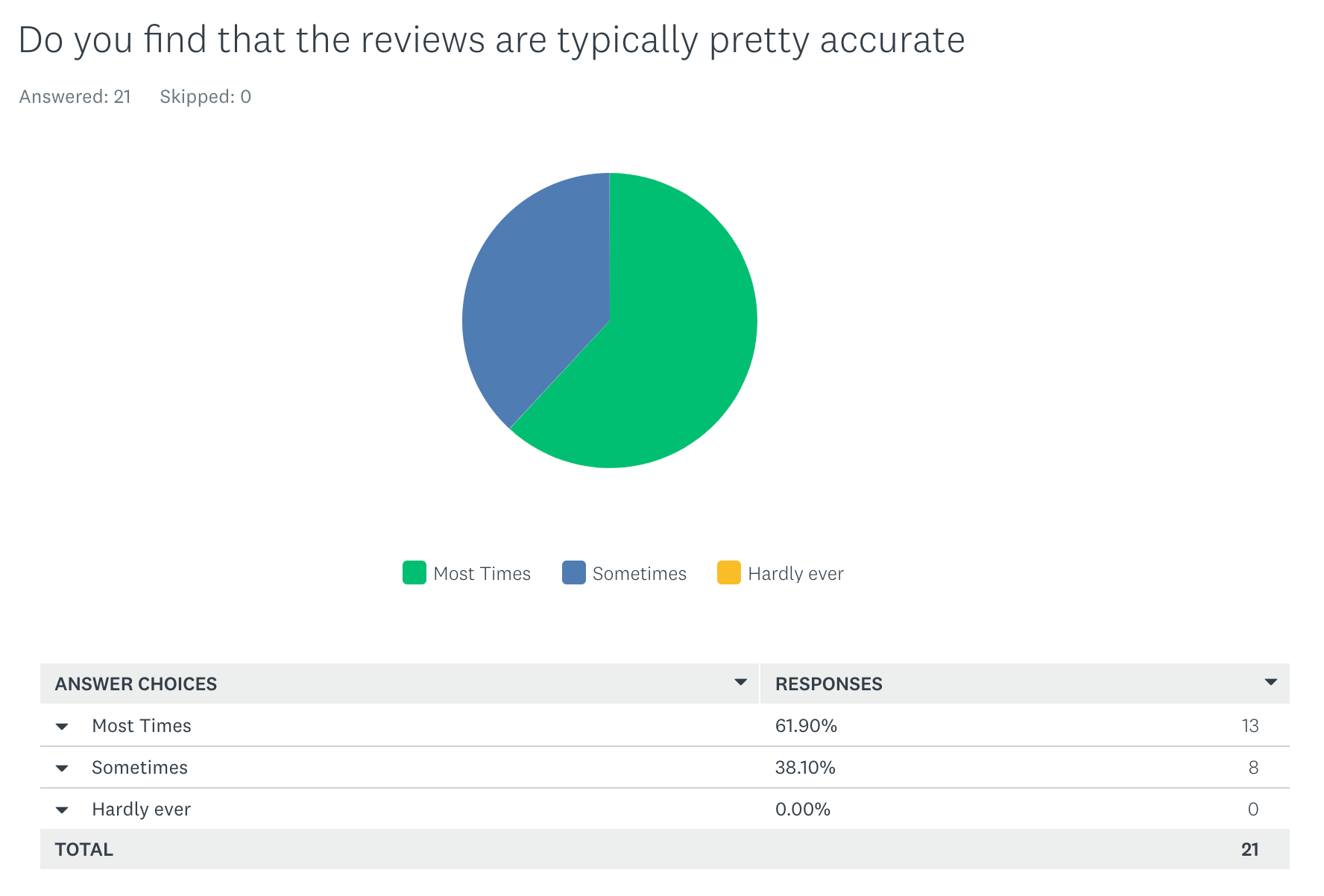
While 13 out of 21 students said they find Rate My Professor reviews to be accurate most times, others say information on the website should be taken with a grain of salt.
“I think Rate My Professor can give you an overall sense of what a course will be like, but I do not take it very seriously. The people who write reviews are usually on either end of an extreme: loving or hating the professor. I’ve found advisors to be fairly honest when I ask them about professors and classes,” said Jacey Albaugh, a senior political science major.
Albaugh recommends that under-class students try to make friends in their classes. In her experience, it helps her stay on top of assignments and get better grades. She typically works with a friend from her major to build her schedule so they can brainstorm the best classes and professors.
“Information from fellow students is most helpful to me when registering for classes. I trust those opinions the most, especially if it comes from a close friend,” said Albaugh.
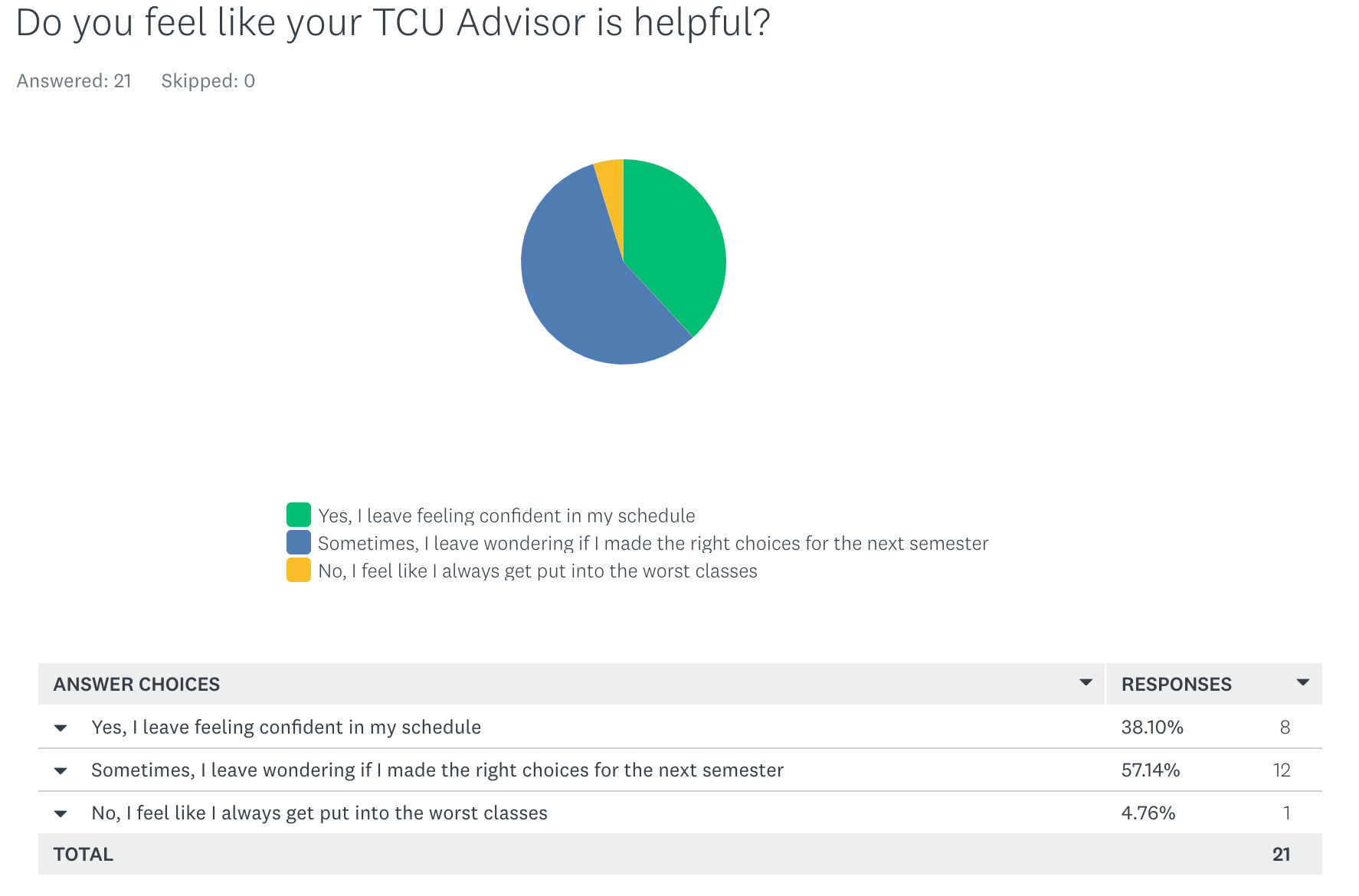
Students use Rate My Professor to fill the void when they may not know anyone who has taken the class or professor they are looking to add to their schedule, but sometimes it falls short in many students’ opinions.
“Rate My Professor gives me an opinion about a professor from people who have taken them before. I would say it does not help me more than an advisor but helps me make a decision on a class if I have other options. Fellow students also help as they tell me their opinion from a direct and current approach,” said Dunkerley.
However, while Rate My Professor may fall short, other students believe their TCU advisors can too.
Twelve out of 21 students surveyed said they leave their advising appointments not entirely confident in their schedule for the next semester.
Self-inflicted

Wendy Macias, the associate Dean of undergraduate studies in the Schieffer College of communications, believes that students may contribute to this confusion by not preparing themselves properly for advising and enrollment. She recommends students check their email often so they can be advised with enough time before registration.
“Students typically have lots of options early, so it is important to know it’s okay if they don’t get their first choice. I see stress at enrollment time, but it is often self-induced,” said Macias.
Macias recommends looking at the academic advising report in advance and making a plan and a list of questions. The system can also help people answer their own questions, she says.
“I think they need to know there are plenty of people who can help if they have questions, but students also need to use the resources they have to answer,” said Macias.
Takeaways
Figuring out the enrollment process and the best way to approach it takes patience, and for many students, the first few semesters of college is a time to decide what major or career they want to pursue.
Core classes may be tedious but they offer students a great foundation of knowledge and the classes that all undergraduates must take can help undecided majors to narrow down their choices.
Many juniors and seniors advise taking as many core classes as early as possible to make room for major classes down the line.
“The best advice I can offer first-year students is to balance core and major classes. Keeping a balance lets you have greater freedom as an upperclassman. Also, everyone should take classes they are actually interested in. It might not be the easiest class, and your friends might not be in it, but it is always worth it to learn about something that interests you,” said Albaugh.
The most common advice upper-class students gave was to reach out to fellow TCU students and build connections that will help throughout college and to not delay making a decision about classes.
“I would have not just relied on my pre-major advisor only as a first-year, and I would have gotten advice from my major professors and peers,” said Pritchett.
“I would make sure I knew what time my slot for signing up for classes was,” said Rooke. “Do not wait to register – do it as soon as you are able to.”




